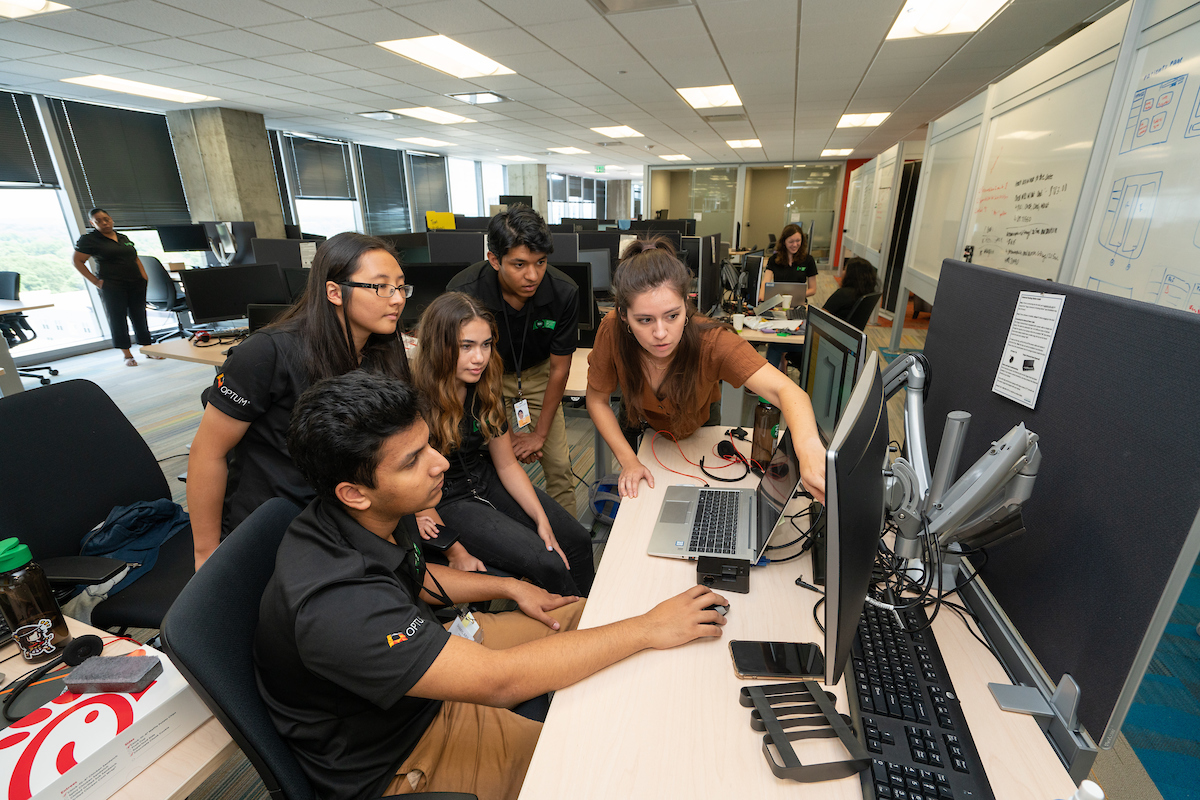From “Someday” to “I Can Do This”: What NAF Academies Teach Us About Durable Skills

Every student deserves to feel that moment when learning becomes real, when knowledge meets purpose and “someday” turns into “I can do this.”
Durable skills make that moment possible and include a combination of how you use what you know – skills like critical thinking, communication, collaboration, and creativity – as well as character skills like fortitude, growth mindset, and leadership.
Across sectors, employers are asking for the same core competencies, like communication, critical thinking, collaboration, leadership, and fortitude. These skills transcend industries, drive opportunity, and anchor long-term success. Yet most schools still struggle to make them explicit, measurable, and developable.
That’s where NAF career academies shine. These academies are living laboratories for durable skills, where students learn by doing, reflect by thinking, and grow by leading. They show that when young people are given real responsibility, they rise to the occasion.
When America Succeeds went looking for schools where they could see students building durable skills in action, NAF quickly pointed them in the right direction, highlighting a handful of the hundreds of schools across the country implementing the NAF design. Students in NAF academies build their durable (or as NAF refers to them, “Future Ready”) skills every day by participating in career-focused coursework and a full continuum of work-based learning activities throughout their academy experience. Industry partners, wanting to build the next generation of skilled talent in their communities, work closely with their local NAF academies to ensure that students are prepared to enter the workforce, understanding what career opportunities are available and the skills they need to be successful from day one.
To understand how this works in practice, America Succeeds engaged three academies where durable skills aren’t just taught – they’re lived – each in a different city, with a different industry focus, and each with the same result: students who graduate future ready.
Three academies, one playbook for real growth:
- DC Academy of Health Sciences (Washington, D.C.) — Students earn CPR/First Aid (and many pursue Certified Nursing Assistant or CNA), complete 120-hour paid clinical internships, and practice patient communication with real stakes.
- Birmingham Academy of Engineering (Alabama) — Four-year design immersion, industry certifications (e.g., Fusion 360), professional engineering notebooks, and senior capstones reviewed by practicing engineers.
- Miami Academy of Law (Florida) — Students run a real Student Court handling 100% of Level 1–2 cases, earn Emergency 911 dispatcher certification, and operate with authentic legal protocols and ethical judgment.
Across these three academies, the same DNA emerges, one any school can learn from:
1. Skills are explicit.
Every NAF academy defines what success looks like through clear, industry-aligned competencies. These aren’t posters on the wall. They’re living frameworks co-created with employers. Students know the skills they’re working on, how those skills are measured, and what professional mastery actually looks like. When feedback comes from nurses, engineers, or attorneys, it’s not abstract. It’s the real-world standard.
2. Work is authentic.
Learning here isn’t preparation for “someday.” It’s practice for now. Students present to engineers, care for patients, and render judicial decisions that carry real consequences. Authenticity raises the bar and the stakes, replacing worksheets with work that matters. Every project becomes both an assessment and an affirmation that students can meet professional expectations.
3. Growth is integrated.
Durable skills aren’t add-ons. They’re the air students breathe. Communication is embedded in clinical interactions, collaboration happens through design projects, and critical thinking unfolds in courtroom deliberations. Each moment of professional practice doubles as skill development. Reflection tools like NAFTrack and professional notebooks make growth visible and trackable, so students can name the progress they’ve earned.
4. Relationships are long-arc.
Students stay with the same advisors and industry mentors across four years, forming the kind of sustained relationships that power real growth. Educators and professionals know each student’s journey: their challenges, breakthroughs, and evolving aspirations. That continuity transforms mentorship from transactional support into developmental partnership, ensuring feedback and challenge arrive with trust.
Students don’t just learn about careers. They experience themselves as capable professionals. That identity shift (“I could do this”) is what durable skills make possible.
Why This Matters… and How You Can Start
NAF academies represent a full expression of what’s possible when durable skills are woven into everything a school does. For schools ready to commit to that transformation, NAF offers a proven roadmap and support system. And for those ready to begin, but not yet ready for a full academy model, the core principles still apply: define the skills clearly, create authentic opportunities to practice them, and build in reflection that makes learning stick.
To support that work, America Succeeds launched the K–12 Durable Skills Framework Pilot (https://americasucceeds.org/k12). It’s a free, ready-to-use menu of tools designed to help educators integrate durable skills into any classroom, program, or grade level.
Resources include:
- Learner-friendly skill tools: Resources like “I Can” statements and vocabulary guides help make abstract skills concrete and actionable, so learners can understand, practice, and talk about what they’re developing.
- Ready-to-use learning activities: Quick activities and short projects create authentic opportunities for students to practice communication, collaboration, and critical thinking in meaningful ways.
- Reflection and growth resources: Prompts, portfolios, and discussion guides help students reflect on their growth, connect learning across contexts, and build self-awareness and agency.
- Observation and feedback guides: Simple “look-fors” help educators recognize skills in action, give targeted feedback, and celebrate progress in real time.
You don’t have to reinvent your system. You can build on what already works, just like NAF does. Start small. Try a few activities. Use the resources to guide reflection.
Ultimately, durable skills don’t expire. And you can start helping your students live their futures right now.



